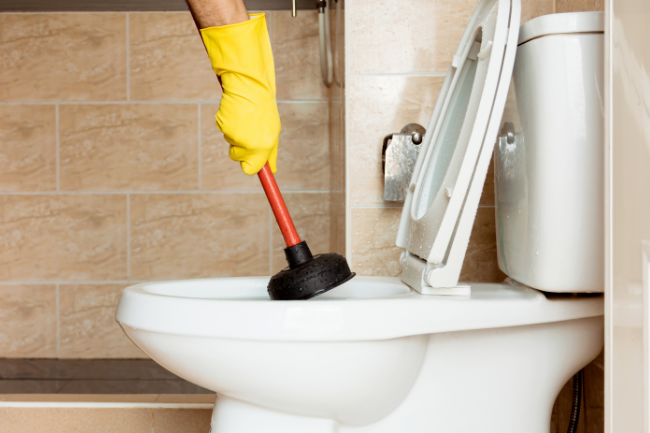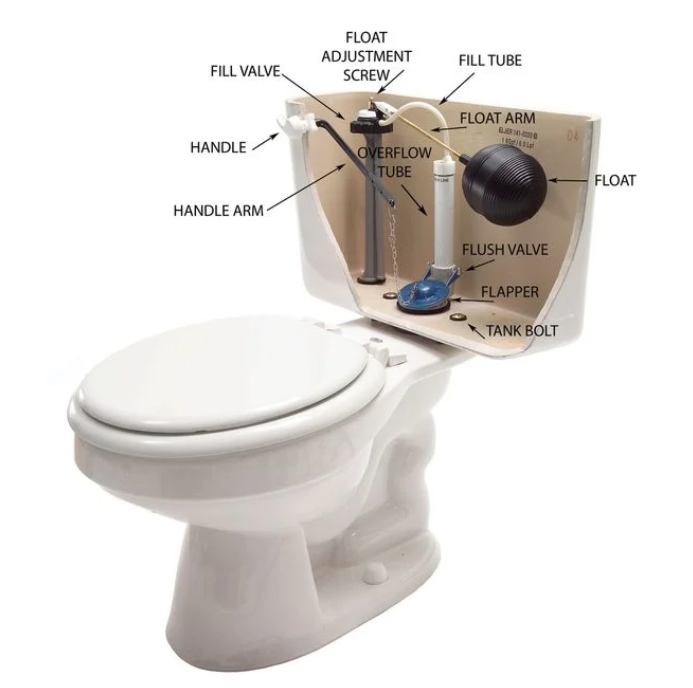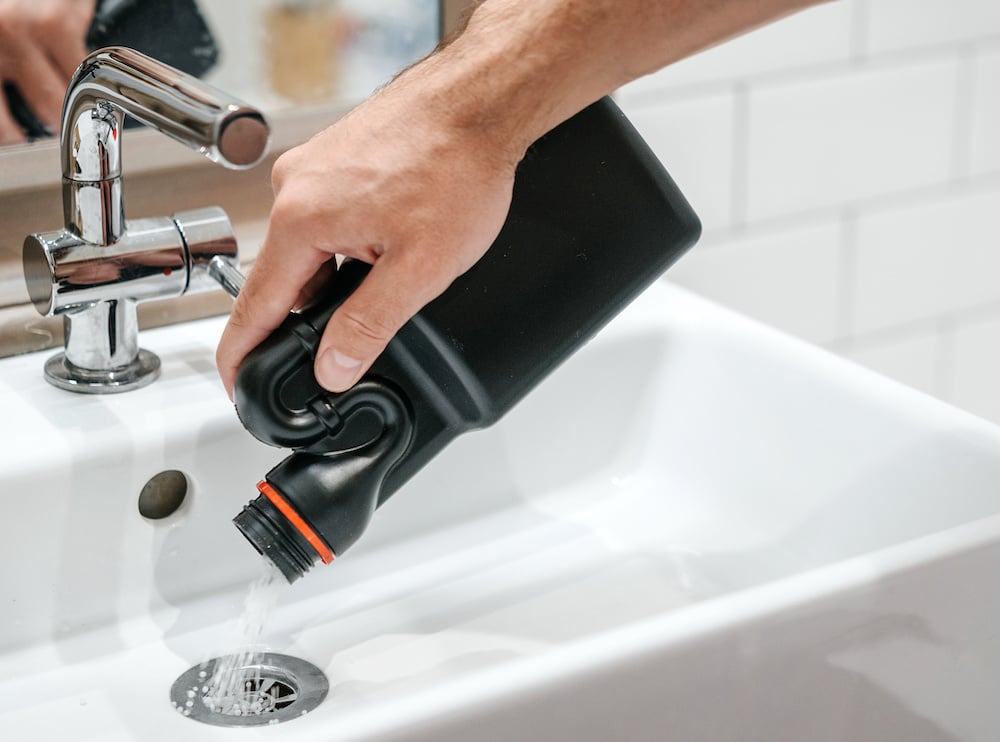The Ultimate Guide to Commercial Plumbing: Everything You Need to Know
Posted by William Heinselman on
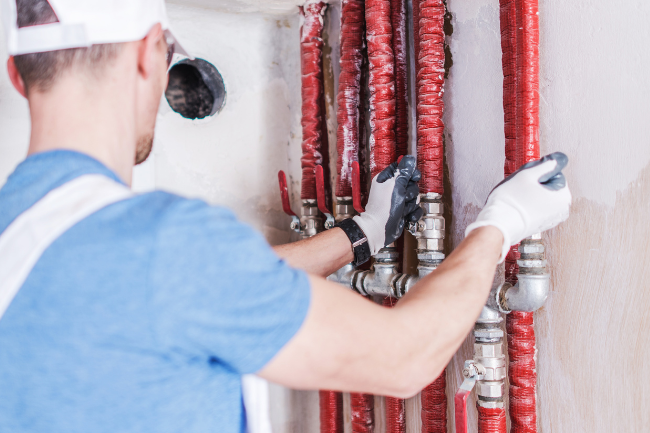
Whether you're a business owner, property manager, or someone interested in the nuances of commercial plumbing systems, this guide is your go-to resource. We'll delve into the essential aspects of commercial plumbing, from understanding the unique challenges faced in large-scale settings to exploring the latest innovations and best practices.
Challenges in Commercial Plumbing
Commercial plumbing comes with its own unique set of challenges, which we've outlined below:
- Scale and Complexity: Commercial spaces, with their vast dimensions, pose challenges due to the heightened demand for plumbing systems, leading to issues like water pressure fluctuations, pipe corrosion, and increased wear and tear.
- Diversity of Fixtures and Appliances: The array of fixtures and appliances in commercial settings adds complexity, requiring specialized knowledge for proper installation and maintenance.
- Compliance with Codes and Regulations: Meeting stringent plumbing codes and regulations is essential for commercial Sacramento properties to ensure the safety and well-being of occupants, adding an additional layer of challenge.
- Increased Wear and Tear: The high usage of plumbing systems in commercial spaces accelerates wear and tear, necessitating proactive measures to prevent and address issues promptly.
- Safety Concerns: Ensuring the safety of occupants is a critical challenge, especially in large-scale environments where plumbing issues can have far-reaching consequences.
- Maintenance Demands: Proper maintenance in commercial plumbing is crucial but often challenging due to the extensive network of pipes and fixtures that require regular inspection and care.
- Specialized Knowledge: Dealing with the intricate nature of commercial plumbing requires specialized knowledge and expertise to address the unique challenges posed by different types of commercial properties.
Features of Commercial Plumbing Systems
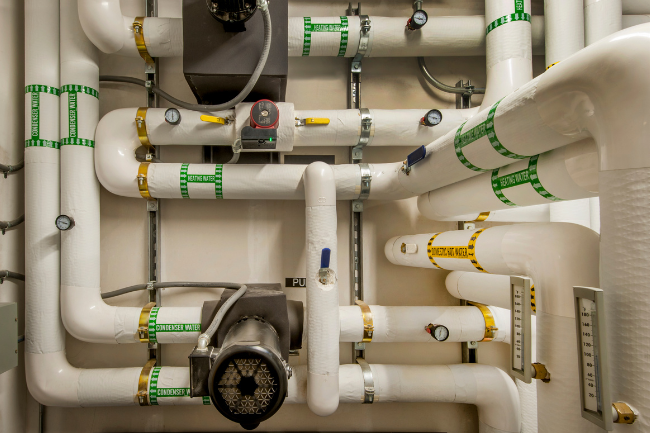
Commercial plumbing systems are designed with distinctive features tailored to meet the demanding requirements and regulations of large-scale and diverse environments. These features collectively contribute to the resilience and functionality of commercial plumbing systems in the face of diverse challenges.
Pipes and Fittings
The choice of pipes and fittings is crucial to the overall efficiency and reliability of commercial plumbing systems. These systems commonly feature durable materials such as copper, PVC, and stainless steel, selected for their ability to withstand the increased demands of large-scale usage. The size and layout of pipes are carefully planned to accommodate the substantial water flow and pressure typical in commercial spaces.
Specialized fittings connect pipes seamlessly and ensure a leak-resistant network. The flexibility of materials allows for customization to suit the unique needs of different commercial properties. Regular inspection and maintenance of pipes and fittings can prevent issues like corrosion and leaks, underscoring the importance of a well-designed and properly maintained plumbing infrastructure in commercial buildings.
Fixtures and Appliances
In large-scale environments, a diverse range of fixtures, including sinks, toilets, faucets, and showers, are strategically installed to meet the various needs of occupants. Commercial plumbing systems often incorporate specialized appliances such as industrial-grade dishwashers and water dispensers, tailored to the requirements of businesses.
The choice of fixtures and appliances is not only influenced by functionality but also by water efficiency and durability. Water-saving technologies, sensor-based fixtures, and energy-efficient appliances are commonly integrated to promote sustainability and reduce operational costs.
Water Heaters and Boilers
Water heaters and boilers ensure a reliable and consistent supply of hot water for various applications. In commercial spaces, there is a larger demand for hot water, necessitating the use of industrial-grade water heating systems. Commercial water heaters are designed to meet the high-volume requirements efficiently, providing hot water for restrooms, kitchens, and other essential areas.
Boilers, on the other hand, play a crucial role in heating water for space heating, contributing to a comfortable indoor environment. The choice of water heaters and boilers in commercial buildings is influenced by factors such as capacity, energy efficiency, and the specific needs of the establishment. Regular maintenance is essential to prevent issues such as scaling and corrosion, ensuring their longevity and integrity.
Drainage Systems
Drainage systems in commercial plumbing are designed to efficiently manage the large volume of wastewater from commercial properties. These systems include a network of pipes and drains strategically placed to facilitate the disposal of used water from various fixtures and appliances.
Gravity plays a key role in guiding wastewater toward the main sewer line, with the inclusion of traps to prevent unpleasant odors from entering the building. Commercial drainage systems are equipped to handle diverse types of wastewater, ranging from standard sanitary waste to industrial effluents. Proper maintenance is crucial to prevent clogs and blockages and ensure the seamless operation of drainage systems in commercial buildings, maintaining hygiene and preventing disruptions to daily operations.
Maintenance and Best Practices
Maintenance ensures the longevity and optimal performance of commercial plumbing systems. Given their extensive network of pipes, fixtures, and appliances, a proactive and routine maintenance approach is vital. Regular inspections are conducted to identify potential issues such as leaks, corrosion, or clogs before they escalate. Commercial plumbers often employ advanced diagnostic tools to assess the condition of pipes and employ preventive measures.
Scheduled servicing of water heaters, boilers, and other crucial components helps maintain their efficiency. Businesses often benefit from entering into maintenance contracts with experienced plumbing services like Express Sewer, ensuring consistent oversight and timely intervention. Educating facility management teams on basic maintenance practices, such as monitoring water pressure and addressing minor leaks promptly, contributes to the overall health of the plumbing system.
In essence, a well-executed maintenance strategy not only prevents costly repairs but also sustains the reliability of commercial plumbing systems, ensuring a smooth and uninterrupted operation.
Innovations in Commercial Plumbing
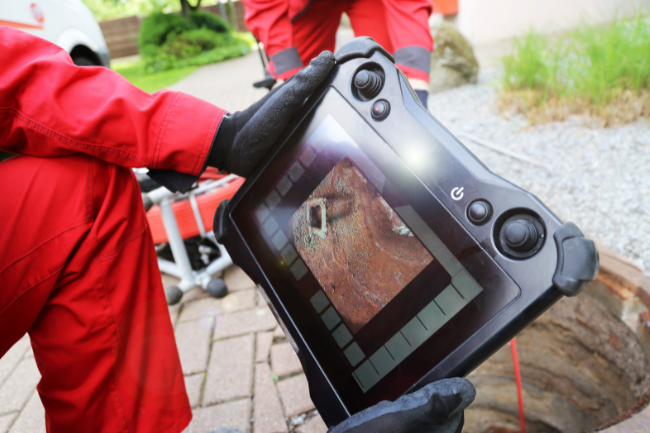
Innovations in commercial plumbing are reshaping the landscape of large-scale water management, offering solutions that prioritize efficiency, sustainability, and technological advancement. Below are some examples of innovations in the commercial plumbing space.
Hydro-Jetting
Hydro-jetting has emerged as a powerful and efficient solution for addressing stubborn clogs and blockages in commercial plumbing systems. This advanced technique involves the use of high-pressure water jets to clear out debris, grease, and mineral build-up within pipes. In commercial settings where the risk of severe blockages is higher due to increased usage, hydro-jetting proves to be a versatile and effective method.
Sewer Video Cameras
The use of sewer video cameras has revolutionized the way commercial plumbing issues are diagnosed and addressed. In commercial environments, identifying the root cause of plumbing issues can be challenging, but sewer video cameras provide an invaluable tool for precision diagnostics.
These cameras are designed to navigate through pipes, providing real-time visuals of the interior condition. In commercial plumbing, this technology allows professionals to identify blockages, leaks, and structural issues without the need for extensive and invasive exploratory work.
Smart Plumbing Technologies
Smart plumbing technologies are transforming the way commercial buildings manage water resources and enhance overall efficiency. These innovative solutions leverage connectivity and automation to provide real-time monitoring, control, and optimization of water usage. Sensor-equipped fixtures, such as faucets and toilets, can detect occupancy and adjust water flow accordingly, promoting water conservation.
Leak detection systems utilize advanced sensors to identify potential issues promptly, preventing water wastage and minimizing damage. Smart water heaters and boilers can be programmed for energy-efficient operation, contributing to sustainability goals.
The integration of cloud-based platforms enables remote monitoring and management of plumbing systems, providing facility managers with valuable insights and control. The adoption of smart plumbing technologies in commercial settings not only enhances operational efficiency but also aligns with the growing emphasis on sustainability and resource conservation in today's dynamic business environment.
Emergency Response and Troubleshooting
In the event of a plumbing emergency, swift and decisive action is essential to minimize disruptions and prevent potential damage. Plumbing professionals are trained to respond promptly, employing advanced diagnostic tools and techniques to identify the root cause of issues such as leaks, burst pipes, or severe blockages. Having a well-defined emergency response plan in place ensures a coordinated and efficient approach, allowing for quick containment and resolution.
Troubleshooting in commercial plumbing involves the systematic identification and resolution of issues through thorough inspection and analysis. Whether it's a sudden loss of water pressure or an unexplained increase in water usage, troubleshooting allows for the identification of underlying problems and the implementation of targeted solutions.
Proactive maintenance, regular inspections, and staff training on basic troubleshooting procedures contribute to a robust emergency response strategy, ensuring the continued functionality of commercial plumbing systems even in challenging situations.
The Difference Between Commercial Plumbing and Residential Plumbing
The distinction between commercial plumbing and residential plumbing lies in the scale, complexity, and specific requirements of each setting. Commercial plumbing is designed to meet the demands of larger properties such as office buildings, shopping centers, or industrial facilities. The plumbing systems in commercial spaces are more intricate, involving a vast network of pipes, fixtures, and appliances to accommodate higher usage. Additionally, commercial plumbing must adhere to stringent codes and regulations, ensuring the safety of a larger number of occupants.
Residential plumbing is tailored for single-family homes or smaller living spaces. It focuses on standard fixtures like sinks, toilets, and showers, with less complex systems. Residential plumbing systems are typically designed to serve the needs of fewer occupants and are subject to less stringent regulations. Understanding these differences is crucial for plumbing professionals to provide effective and tailored solutions in each context.
Call a Professional for Your Commercial Plumbing Needs
If your property is experiencing plumbing issues, or you need to schedule regular maintenance, give the experts at Express Sewer and Drain a call. Our commercial plumbing services can help your plumbing system maintain its longevity and save you money in the long run. Contact us today to learn more.
Topics: Commercial Plumbing

